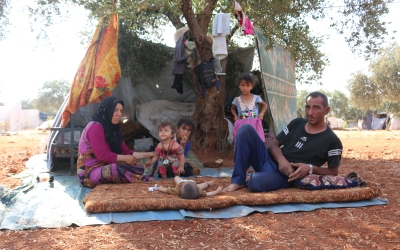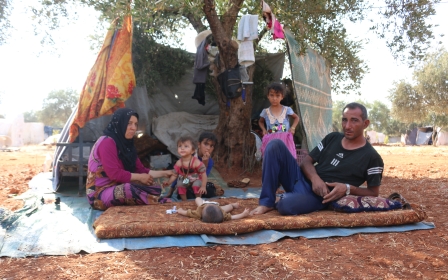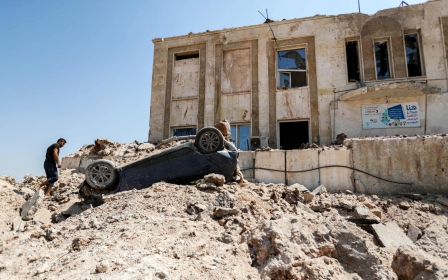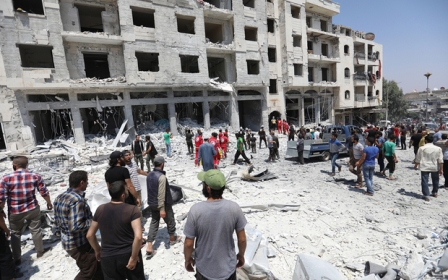Syria's Idlib is 'slowly disappearing', Recep Tayyip Erdogan says
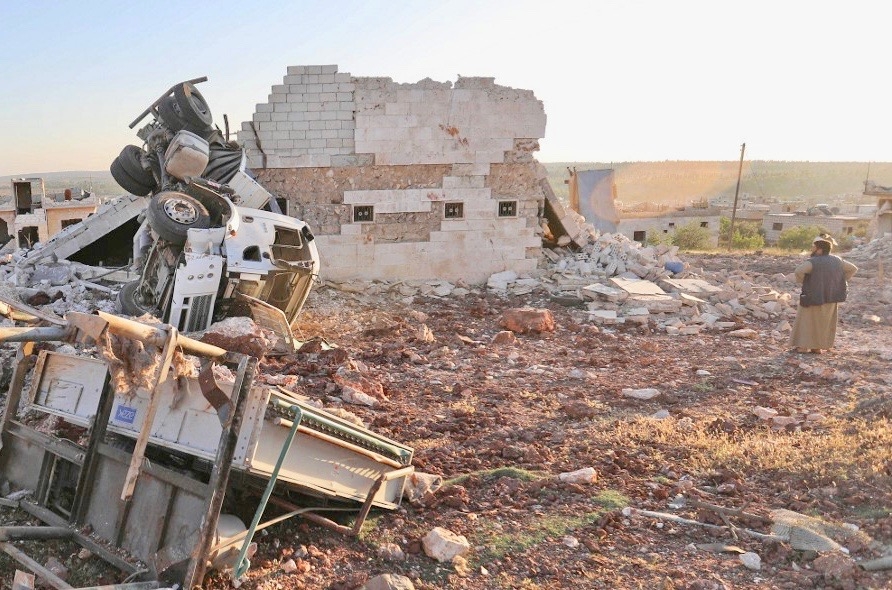
Turkish President Recep Tayyip Erdogan has warned that Idlib is "slowly disappearing", despite a ceasefire in the rebel-held enclave of northwest Syria that was reached after months of air strikes and heavy shelling between militants and government forces.
Turkey's state-run Anadolu news agency reported on Tuesday that Erdogan said Idlib is at risk of turning into another Aleppo, which was decimated in previous clashes between Syrian government forces and rebel groups.
"Idlib is slowly disappearing," Erdogan said during a news conference in Ankara, as reported by Reuters.
"Idlib is in a situation that it started to disappear and become torn down in a way Aleppo is. It is not possible to stay silent against this," he said.
The Syrian government and its ally Russia launched a military offensive in Idlib province, the last rebel-held area in the war-torn country, earlier this year.
New MEE newsletter: Jerusalem Dispatch
Sign up to get the latest insights and analysis on Israel-Palestine, alongside Turkey Unpacked and other MEE newsletters
Turkey, which backs some rebel groups in Syria, and Russia helped broker a 2017 ceasefire agreement in the area to stave off a planned government offensive at that time.
The deal fell through, however, and the Syrian government's bombardments of Idlib began again in late April.
More than 400,000 people have been displaced in the Syrian government's offensive in Idlib, the United Nations has estimated, while activists say around 1,000 civilians have also been killed.
The UN has sought to broker a deal to end the onslaught, as medical facilities and other civilian infrastructure have been bombed.
Over the weekend, Russia announced that Syrian government forces would observe a new ceasefire in Idlib in an effort "to stabilise the situation".
But a US-led coalition air strike killed dozens of militants in the province on 31 August, the first day the ceasefire came into effect.
At least 40 militants belonging to the Hurras al-Deen, an al-Qaeda affiliate, and other armed groups including Ansar al-Tawhid were killed in a training camp, the Syrian Observatory for Human Rights activist group said.
Uncertainty over 'safe zone'
On Tuesday, Erdogan said the situation in Idlib would be his main priority when he meets with US President Donald Trump on the sidelines of the UN General Assembly later this month.
Relations between Ankara and Washington have been tense over the Turkish government's opposition to a US-backed, Kurdish militia in Syria, which led the fight against the Islamic State (IS) group in the country.
Turkey also has called for a safe zone to be established in northeastern Syria.
A joint operations centre has been set up and joint US-Turkish patrols are expected to start soon in that part of the country.
But Erdogan said on 31 August that Turkey must retain control over the safe zone, or else it would launch its own operations in the area.
"We do not have too much time or patience regarding the safe zone. Within a few weeks if our soldiers do not start to actually control this area, there will be no other option left but to implement our own operation plans," Erdogan said during a speech in Istanbul.
On Tuesday, the Turkish president added that the safe zone is "nothing more than a name right now".
Middle East Eye delivers independent and unrivalled coverage and analysis of the Middle East, North Africa and beyond. To learn more about republishing this content and the associated fees, please fill out this form. More about MEE can be found here.


